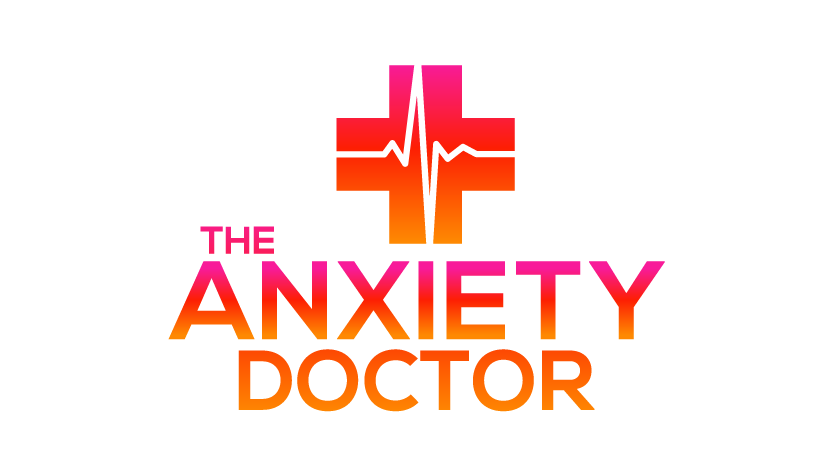SOCIAL ANXIETY: Tips and Recommendations
Social Anxiety Disorder, or Social Phobia, is an intense fear of being judged, negatively evaluated, or rejected in a social or performance situation, such as conversing with a stranger, eating in front of others, or speaking in front of a group of people. It is diagnosed when the fear or anxiety is out of proportion to the actual threat posed by the social situation.
If you have social anxiety, there are several things you should know that will help you right now.
UNDERSTANDING SOCIAL ANXIETY SYMPTOMS
Social anxiety is the most common type of anxiety. We can all relate to the feelings associated with this fear.
Bioevolutionary theorists suggest that we developed social anxiety to survive early in human history. The only way to survive the elements, predators, and food scarcity was to work together. Also, without fear of social banishment, we would be less likely to attract mates and procreate.
Social anxiety occurs in 15 million adults in the United States, or 7%, and is seen in equal numbers in females and males.
75% are diagnosed between the ages of 8 and 15 years.
There is evidence for temperamental and genetic causal factors. In other words, biologically based individual differences in behavior and your genes will have a say in how much you struggle with social anxiety.
D.I.Y. FOR FOR SOCIAL ANXIETY
Below are some ideas for exercises to get you started in addressing your social anxiety.
Take an inventory of your current avoidances due to social anxiety. Keep this list for comparison to measure your progress over time. You can download an Anxiety Hierarchy Template here. This is a free tool to help you track these more easily.
Exercise: KIND ACTS
Part of the problem is that you forget just how much value you have and you do not see what you can contribute to any social situation. Remind yourself of your value by purposefully engaging in at least one kind act per day. The more the merrier - literally.
Exercise: GOOD IN OTHERS
Most people are mostly good.
People are basically good. If we remember this simple fact, we can begin to retrain our brains to see socialization in a different light. Social interaction does not have to be nerve-racking, scary, or dangerous even.
Train yourself to recognize good in others by isolating positive stories every day. Look around you in your daily routine. Who do you notice being helpful? Who is being kind?
Watch social media clips of people helping children, the elderly, or saving animals. Record these in either a mental or written log on a daily basis for three weeks.
Exercise: CONTRIBUTE TO COMMUNITY
Social connection is a healthy pursuit. We have lower levels of depression and anxiety when we feel like we are socially accepted. Wherever we fall on the spectrum of extroversion to introversion, most of us need to feel like we are a part of a greater community. You have several communities. You can identify them by thinking about what you love, what you care about, what you enjoy, etc. What do you most strongly relate to out of the many facets of your identity?
I want you to identify a few and then choose one. For instance, I identify with the following communities: psychotherapists/healers, natural-holistic lifestyle, cat people, dog moms, friends of parrots, 4AD music fan, cake bakers, KonMarie do-ers, interior design amateurs, and I could go on.
After you name a few of your own stand-outs, I want you to begin to place yourself in these communities - including virtual communities. This will serve several purposes, the most vital of which is to give you a sense of social connection to other people, even in the subtlest ways. The following are some suggestions of how this can be done:
Exposure 1. Find and join relevant Facebook groups. If you are not on Facebook, you should join because like it or not, this is the way we connect with each other now. This is how we find local events based on our interests, too. This is also how we keep in touch with both new acquaintances and old friends. THEN PARTICIPATE ONLINE. Like and comment on strangers’ posts. It will make them feel good!
Exposure 2. Volunteer - work, school extracurricular, or church
Exposure 3. Join a team - sports - pick up leagues, running groups, role-playing games (RPGs)
Spend TIME in your community. It is not enough to only place yourself in your community. But you also must contribute both your time and effort. This is going to help you build your social skills as well as increase your sense of ease relating to others over time. Your participation can be subtle: a like on a social media post, or it can be more direct: offering your value to help others.
Create a mantra to remind yourself that you are safe. Remember you are not playing a role to fit in. You are simply being your authentic self.
I am enough.
I am inherently valuable.
My value is in my uniqueness.
TREATMENT OPTIONS FOR SOCIAL ANXIETY
Cognitive Behavioral Therapy with an emphasis on “behavioral” is extremely helpful for social anxiety.
Medication therapy is also available for more immediate relief. However, medication alone will not get rid of this problem.
Remember you are not alone - social anxiety is a very common experience!
As unpleasant as these symptoms undoubtedly are, you are more powerful than they are. They are temporary when you are experiencing them, and these symptoms are treatable.
If you want more specific help with your social anxiety, without breaking the bank for one-on-one therapy, get access here:
This article is for informational purposes only, even if and to the extent that it features the advice of medical practitioners. This article is not, nor is it intended to be, a substitute for professional medical advice, diagnosis, or treatment and should never be relied upon for specific medical advice.



